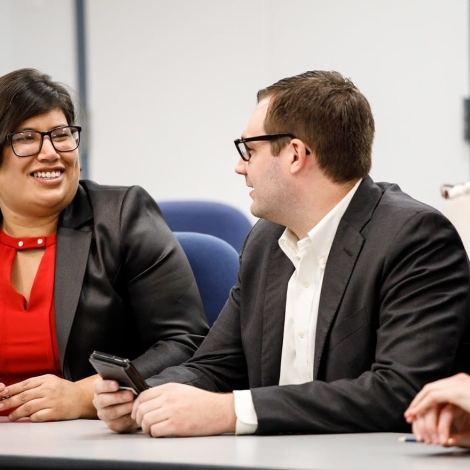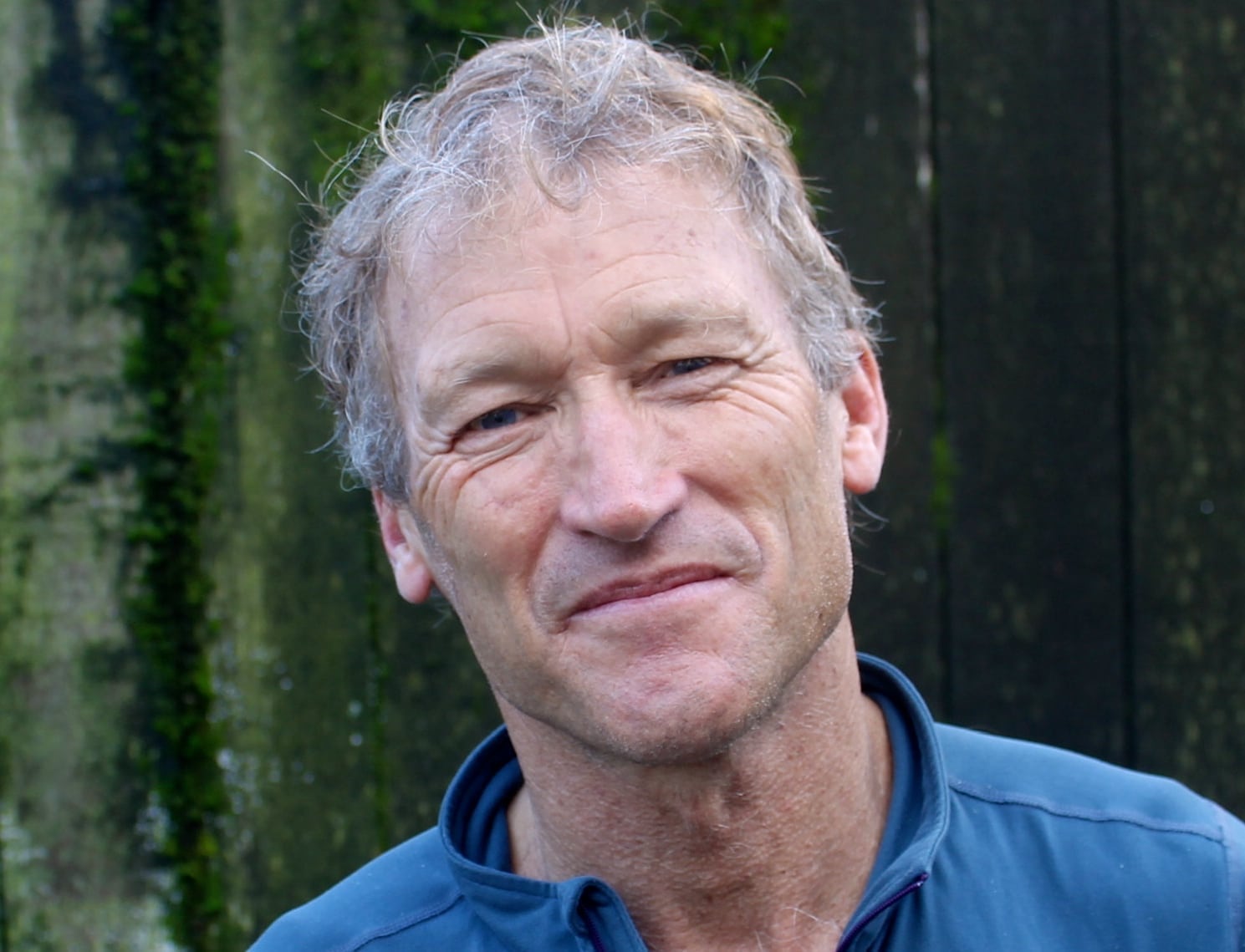 Few advanced academic programs offer a formal education in social entrepreneurship. The reason may be as simple as the fact that the field is a small (but growing) niche in the business world. Another factor may be that tradition-bucking entrepreneurship does not lend itself easily to academia. But Lehigh University in Bethlehem, Pennsylvania, has approached the problem with an attractive offer: a full-ride scholarship. Rather than building a dedicated program, Lehigh makes an offer that is hard to refuse to one budding social entrepreneur each year. One student each year earns the right to enroll in Lehigh’s 11-month Master of Business Administration program, called 1-MBA, free of charge. Their tuition is covered and they also earn a stipend of (USD) $18,000 to help with living expenses. Upon graduation, the expectation is that they will apply their skills to some form of social enterprise.
Few advanced academic programs offer a formal education in social entrepreneurship. The reason may be as simple as the fact that the field is a small (but growing) niche in the business world. Another factor may be that tradition-bucking entrepreneurship does not lend itself easily to academia. But Lehigh University in Bethlehem, Pennsylvania, has approached the problem with an attractive offer: a full-ride scholarship. Rather than building a dedicated program, Lehigh makes an offer that is hard to refuse to one budding social entrepreneur each year. One student each year earns the right to enroll in Lehigh’s 11-month Master of Business Administration program, called 1-MBA, free of charge. Their tuition is covered and they also earn a stipend of (USD) $18,000 to help with living expenses. Upon graduation, the expectation is that they will apply their skills to some form of social enterprise.
The Asa Packer Social Entrepreneurship Award is in its second year, with one graduate and one student now enrolled.
“The program naturally attracts social entrepreneurs, as the curriculum has courses focused on large societal shifts such as climate change, changing demographics, and disruptive innovation,” says Kevin Ezzell, Director of the 1-MBA program. “Lehigh University has a strong tradition of pursuing and supporting entrepreneurial, humanitarian efforts, and looking at problems from an interdisciplinary lens, which aligns well with this scholarship.”
We asked Mr. Ezzell five questions about Lehigh’s work to promote social entrepreneurship.
E4C: What are recipients of the Asa Packer Scholarship doing now?
KE: Kayode Ajayi-Smith is the first graduate of the program. He is CEO of a consultation firm called Smithswork Ltd. in Lagos, Nigeria. According to Smithswork’s mission statement, the firm consults with businesses in the sectors of agriculture, construction, health, information technology and manufacturing. The other recipient is Katherine Vásquez Tarazona, who is enrolled now and came here from Lima, Peru. Before beginning the program, Katherine worked as a lawyer and international affairs analyst for small companies. She plans to use her new MBA to support companies making a positive social impact, she says.
E4C: Interdisciplinary coordination is paramount in global development and social entrepreneurship. How does Lehigh emphasize that kind of interaction?
KE: The 1-MBA encourages applicants with various educational backgrounds to apply for this program, as we want different perspectives in the classroom. Many of our courses in the fall semester are actually team taught faculty courses, giving students different perspectives and solutions to solve problems from faculty from two different areas, such as marketing and supply chain management. The program emphasizes real world engagement primarily through its Consulting Practicum course. This course actually places students with actual companies, working on company problems normally given to business consultants. The Practicum occurs both in the fall and spring semesters, where students learn the consulting process and mind set in the fall, gain exposure to some of the most well-known consulting firms in the country, but also engage with business analysts, business executives, and even non-profit leaders. The practicum delivers a highly experiential component to the MBA program that is engaging and memorable for the students.
One company we are working with will be working on a project specifically around changing demographics and how that is impacting their business. None of the students on this team project have experience in this field, so they will be resourcing their MBA experience along with their own personal experiences to serve as business consultants for this project. The synergies between some of the societal shifts such as changing demographics become even more present when interacting with actual companies who are wrestling with this shift.
E4C: Thinking about the legend of the college-dropout billionaire, how important is an MBA to entrepreneurs? What can they pick up in higher education that would be hard to come by out in the wild?
KE: That is a great question. Someone has to have the drive to be an entrepreneur. That is typically not something a university is going to teach you. It has to be in you, you have to have a passion for it. What an MBA program can do is give you the exposure to areas you are not well-rounded in, such as Finance, Accounting, and Marketing. An example here at Lehigh University is that students may have a significant background in entrepreneurship, but they do not understand how to gain access to the venture capital marketplace or potentially how to exit a business plan. These are things that will be required when working with venture capitalists. Students enrolled in the 1-MBA can take courses like this as part of their elective package. We also focus heavily on soft skills, such as communication style. While this may be overlooked by some, we know time and time again it appears on the most desired skill sets employers want and it also appears on the skills lacking in many new hires.
E4C: The 1-MBA program is not focused on social entrepreneurship, but it’s a theme that runs throughout?
KE: That is correct. There are undertones of the social component throughout the curriculum, especially in the Societal Shifts courses. Students have the ability to take courses in entrepreneurship as part of their nine elective credits in the program.
I think the theme of entrepreneurship in general runs through Lehigh University. For future Asa Packer scholarship recipients, I see these students selecting elective credits in entrepreneurship and also leveraging experiences on or near campus. For example, Lehigh University has the Baker Institute dedicated to inspiring and educating the next generation of entrepreneurial thinkers. 1-MBA students interested in entrepreneurship could potentially pitch these business idea for practice and actual seed money in one program they offer or participate in a Design Thinking training. This culture of entrepreneurship around campus combined with the focus on these world changing societal shifts is what breeds a great environment for a social entrepreneur.
E4C: What’s your vision for the program and the scholarship?
KE: My vision is that over time the program will develop graduates who are going on and establishing these companies and come back to serve as Industry Executive Advisors for future 1-MBA students. Currently the program has a three team mentor approach (Career Coach, Industry Executive Advisor, and Faculty Advisor) for each student, but the Executive Industry Advisors are well established in their industry. I am excited for the day when 1-MBA alumni will be able to give back in this way to the program, to mentor the social entrepreneurs of tomorrow here at Lehigh. The scholarship sends a strong message of the program’s commitment to supporting humanitarian efforts and that we can be the water and fertilizer to grow the seed into a successful and sustainable business venture.
For more, please see Lehigh’s web page about the Asa Packer Social Entrepreneurship Award.

